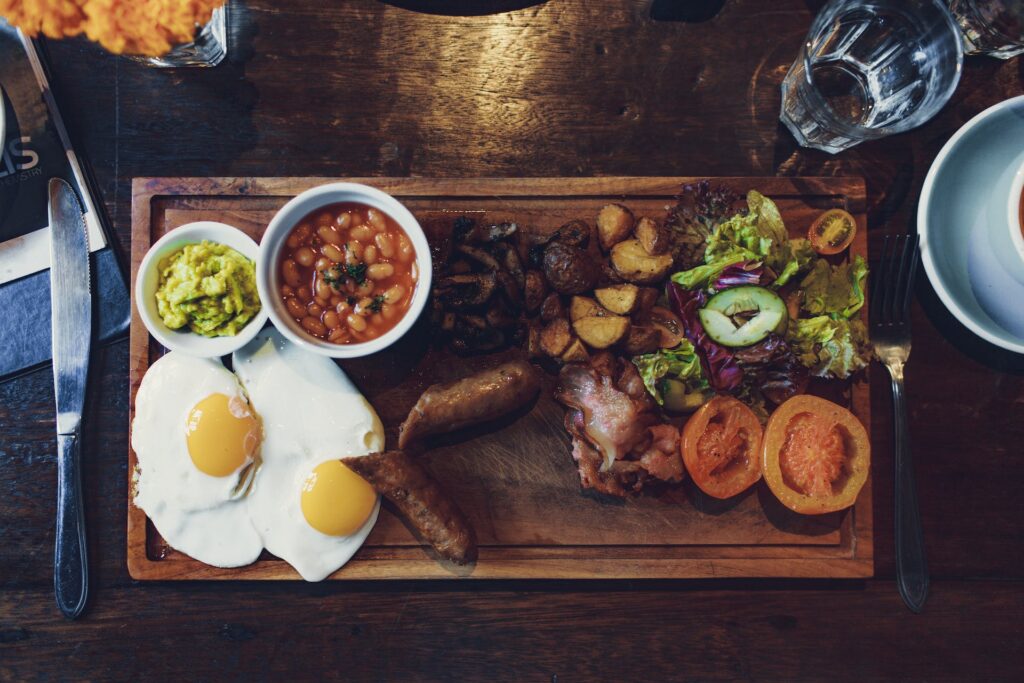Are you a woman who is trying to lose weight? If this is you, more than likely you have heard about how eating a high protein, high fat, low-carb diet is one of the fastest and best ways to lose weight. It seems as if everyone is on one type of low-carb diet or another.
Low-carb diets are terrific, but let’s face facts; eating chicken breasts every day gets a bit dull, doesn’t it? You want protein, but you don’t want to eat the same thing day after day, right? We want to help you break free from that boring grilled chicken and egg salad routine.
Does Eating More Protein Help Women Lose Weight?
In the world of female weight loss strategies, the role of nutrition takes center stage, with protein emerging as a crucial player. Many women wonder whether increasing their protein intake can significantly contribute to their weight loss journey. Let’s delve into the science behind it and explore whether incorporating more protein into one’s diet is a viable strategy for shedding those extra pounds.
Protein and Satiety
One of the key benefits of consuming more protein is its ability to enhance feelings of fullness and satiety. Protein-rich foods take longer to digest, helping to curb hunger and reduce overall calorie intake. This can be particularly beneficial for women striving to manage their weight, as it may contribute to a more controlled appetite throughout the day.
Metabolic Boost
Protein has a higher thermic effect compared to fats and carbohydrates, meaning the body expends more energy to digest and process protein. This increase in metabolic rate, albeit modest, can be advantageous in the context of weight loss. By choosing protein-rich foods, women may potentially burn more calories during digestion, supporting their overall energy balance and weight management efforts.
Preservation of Lean Muscle Mass
Weight loss often involves a combination of fat and muscle loss. However, maintaining lean muscle mass is crucial for sustaining a healthy metabolism. Protein plays a pivotal role in muscle preservation, making it an essential component of any effective weight loss plan. For women, especially, incorporating sufficient protein into their diet can help ensure that the weight lost comes primarily from fat rather than muscle tissue.
Choosing Quality Protein Sources
Not all proteins are created equal. Opting for lean sources of protein, such as poultry, fish, legumes, and low-fat dairy products, is important for achieving the desired health outcomes. These sources provide essential amino acids without excessive saturated fats, contributing to a balanced and nutritious diet.
The relationship between protein intake and female weight loss is a promising avenue worth exploring. By promoting satiety, boosting metabolism, and preserving lean muscle mass, increasing protein consumption can be a valuable strategy for women on their weight loss journey.
However, it’s crucial to approach this with a holistic perspective, incorporating a well-rounded diet and regular physical activity for sustainable and long-term success.
15 of the Best Sources of Protein for Women to Lose Weight
Let’s shake up your low-carb routine by adding some great sources of protein that you might not have considered before!
- Sun Dried Tomatoes
Most people think of these only as part of a recipe plan, but these are actually full of protein and can be eaten as a snack or use them as toppings for eggs or even pizzas.
- Peas
Although peas are tiny in size, they are loaded with protein, as well as vitamin C.
- Buffalo (Bison)
Bison meat has half of the fat and fewer calories than beef, which makes it a good choice.
- Spinach
Whether you eat it fresh or cooked, you can’t beat Popeye’s favorite for protein, as well as tons of vitamins and folate.
- Artichokes
The humble artichoke has one of the highest protein levels among vegetables, as well as tons of fiber.
- Halibut
Salmon seems to get all the attention, so if you love fish, don’t forget the halibut! This fatty fish is rich in protein and super satisfying.
- Turkey
Most people only think of this bird during Thanksgiving. The great thing about turkey is that you can buy it ground and use it in place of any recipe that calls for hamburger. Turkey is a very versatile bird!
- Beans
Beans are the magical fruit, yes, but they are also super good for your heart! ALL types of beans are good for your brains, heart, muscles, and are loaded with protein.
- Nut Butters
Of course, you don’t want to overindulge with nut butters, but the truth is that no sugar added nut butters contain protein and are a good source of healthy, natural fats.
- Whole Grain Bread
Speaking of nut butters, what would they be without bread? While most people think bread is forbidden on a low-carb diet, the truth is that, eaten in moderation, whole grain breads can be a great source of protein and fiber.
- Gruyère Cheese
Cheese lovers love low-carb diets because they eat a lot of it! However, most people have never heard of this white cheese. This tastes something like Swiss cheese, but has more protein than an egg!
- Greek Yogurt
Make this type of yogurt one of your new best friends because studies have shown that women who consume yogurt as a part of their diet, lose more weight than women who don’t. Look for low fat, plain Greek yogurt and add a handful of fresh berries to it for a protein filled snack.
- Pumpkin Seeds
Dry, roasted pumpkin seeds are another terrific source of protein, fiber, and healthy fats that really satisfy that urge to chew. Eat a handful before a workout or toss them in salads or rice dishes for a nice change of taste!
- Pork
While pork often gets a bad rap because of its high fat content, when you choose tenderloin, it actually has less fat than a skinless breast of chicken.
- Pacific Cod
While those baskets of fried fish and chips won’t win you any weight loss prizes, eating baked fish strips or sticks (which is how cod is usually made) can help your diet, due to their high protein and amino acid makeup. Higher levels of amino acids in your food mean a higher running metabolism overall.
The Myth of Passive Fat Burning: Does Protein Burn Fat Without Exercise?
The idea of passive fat burning, specifically through dietary interventions like increased protein intake, is a common curiosity. Let’s review the relationship between protein consumption and fat burning in the absence of exercise, shedding light on the scientific realities and dispelling potential myths.
Protein’s Thermic Effect
Protein’s reputation as a metabolism booster extends beyond its role in aiding weight loss through exercise. The thermic effect of food (TEF) refers to the energy expenditure associated with digesting and absorbing nutrients. Protein, with its higher TEF compared to fats and carbohydrates, does contribute to an increase in calorie burning during digestion. However, it’s essential to note that this effect, while present, is relatively modest and not sufficient to replace the significant calorie expenditure associated with regular physical activity.
Caloric Balance and Weight Loss
Weight loss fundamentally revolves around the concept of caloric balance—burning more calories than consumed. While protein’s thermic effect can contribute to this equation, the overall impact is limited without considering the broader context of diet and lifestyle. Consuming excess calories, even from protein, without a corresponding increase in energy expenditure, can still lead to weight gain rather than loss.
Exercise as a Catalyst for Fat Burning
Exercise remains a cornerstone in the fat-burning process. It not only expends calories directly but also enhances the body’s metabolic rate, contributing to sustainable and effective weight management. While protein supports muscle preservation during weight loss, the synergistic effect of protein and exercise is particularly potent in promoting fat loss and overall body composition improvement.
The Importance of a Comprehensive Approach
Rather than seeking a magic bullet, it’s crucial to adopt a comprehensive approach to weight loss. Incorporating adequate protein into the diet is beneficial, not only for its thermic effect but also for its role in promoting satiety and preserving lean muscle mass. However, for optimal results, this dietary strategy should be complemented by regular physical activity and an overall healthy lifestyle.
While protein does play a role in the calorie-burning process through its thermic effect, relying solely on increased protein intake without exercise is not a panacea for fat loss. A holistic approach that combines a protein-rich diet, regular physical activity, and mindful calorie management is key to achieving sustainable and meaningful weight loss results.
Understanding the synergy between diet and exercise empowers individuals to make informed choices on their journey toward a healthier and more balanced lifestyle.
Striking the Balance: Why Is Too Much Protein Bad For Weight Loss?
While protein is a valuable ally in the pursuit of weight loss, the adage “more is better” doesn’t always hold true. Here are the potential drawbacks of consuming excessive protein and highlights why moderation is key in optimizing weight loss outcomes.
Caloric Surplus and Weight Gain
Protein-rich foods often come with additional calories, and overconsumption can inadvertently lead to a caloric surplus. Despite the benefits of the thermic effect of protein, the excess calories from protein-rich sources can contribute to weight gain if not offset by increased physical activity or a reduction in overall caloric intake. Therefore, it’s essential to strike a balance between protein consumption and overall energy balance to avoid undermining weight loss efforts.
Digestive Discomfort
Too much protein can also lead to digestive issues. High protein intake may overload the digestive system, causing discomfort, bloating, and even constipation in some individuals. Optimal protein consumption varies among individuals, and exceeding one’s tolerance can result in an unpleasant experience, potentially deterring adherence to a weight loss plan.
Potential Nutrient Imbalance
Excessive focus on protein may inadvertently lead to a nutrient imbalance in the overall diet. Neglecting other essential macronutrients and micronutrients from a well-rounded diet can impact overall health. A balanced intake of carbohydrates, fats, vitamins, and minerals is crucial for supporting various bodily functions and promoting overall well-being.
Kidney Strain and Long-Term Health Concerns
While there is limited evidence to suggest that a high-protein diet may pose risks to individuals with pre-existing kidney conditions, consistently consuming excessive protein can potentially strain the kidneys over time. It’s crucial for individuals, especially those with existing health concerns, to consult with healthcare professionals to determine an appropriate and sustainable protein intake level.
Finding the Right Balance
The key takeaway is that moderation is paramount. While protein is an essential component of a weight loss strategy, an indiscriminate approach to increasing protein intake can lead to unintended consequences. Tailoring protein consumption to individual needs, considering factors such as age, activity level, and overall health, ensures a balanced and sustainable approach to weight loss.
In the pursuit of weight loss, moderation and balance should guide dietary choices. While protein is a valuable asset, too much of a good thing can have counterproductive effects.
Striking the right balance between protein intake, overall caloric consumption, and a well-rounded diet is essential for achieving sustainable and health-promoting weight loss results.



0 Comment